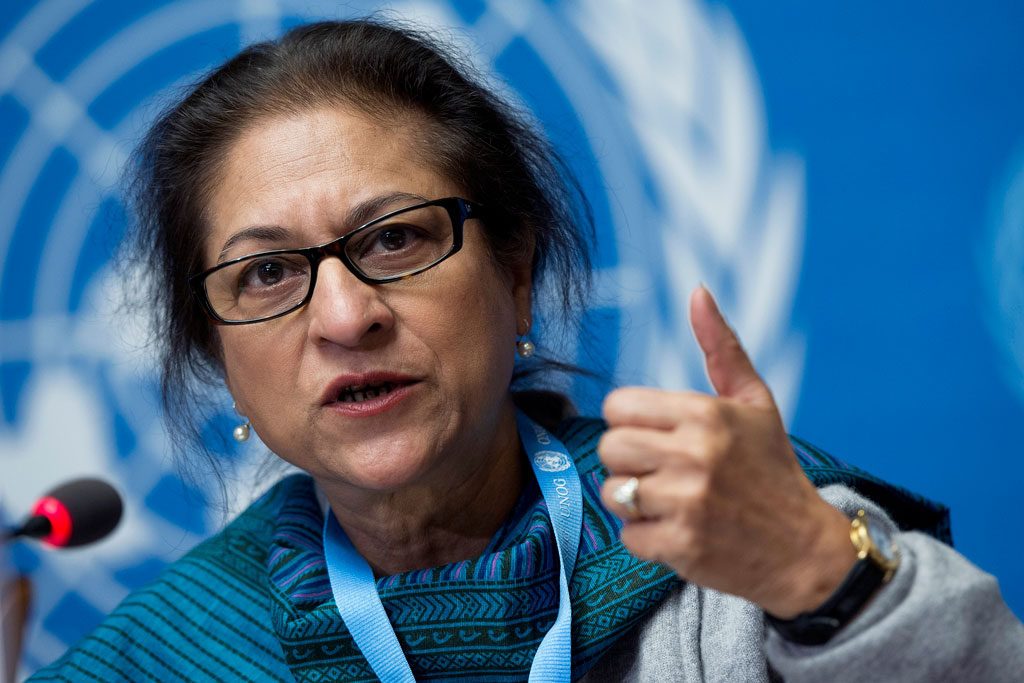The United Nations Special Rapporteur on the human rights situation in Iran on 14 August 2017 drew international attention to the 1988 massacre that was carried out by people who currently hold senior positions within the Government of Iran.
Her report, (A/72/322), stated:
“73. Between July and August 1988, thousands of political prisoners, men, women and teen-agers, were reportedly executed pursuant to a fatwa issued by the then Supreme Leader, Ayatollah Khomeini. A three-man commission was reportedly created with a view to determining who should be executed. The bodies of the victims were reportedly buried in unmarked graves and their families never informed of their whereabouts. These events, known as the 1988 massacres, have never been officially acknowledged. In January 1989, the Special Representative of the Commission on Human Rights on the situation of human rights in the Islamic Republic of Iran, Reynaldo Galindo Pohl, expressed concern over the “global denial” of the executions and called on Iranian authorities to conduct an investigation. Such an investigation has yet to be undertaken.
“74. In August 2016, an audio recording of a meeting held in 1988 between high-level State officials and clerics was published. The recording revealed the names of the officials who had carried out and defended the executions, including the current Minister of Justice, a current high court judge, and the head of one of the largest religious foundations in the country and candidate in the May presidential elections. Following the publication of the audio recording, some clerical authorities and the chief of the judiciary admitted that the executions had taken place and, in some instances, defended them.”
The report added in its conclusions and recommendations:
“109. Over the years, a high number of reports have been issued about the 1988 massacres. If the number of persons who disappeared and were executed can be disputed, overwhelming evidence shows that thousands of persons were summarily killed. Recently, these killings have been acknowledged by some at the highest levels of the State. The families of the victims have a right to know the truth about these events and the fate of their loved ones without risking reprisal. They have the right to a remedy, which includes the right to an effective investigation of the facts and public disclosure of the truth; and the right to reparation. The Special Rapporteur therefore calls on the Government to ensure that a thorough and independent investigation into these events is carried out.”
Twenty-nine years after the 1988 mass extra-legal executions of political prisoners in Iran, JVMI believes that until the full truth is unveiled and the perpetrators are held to account for their crimes, there will be no incentive for the Government of Iran to change its policy on human rights.
JVMI therefore urges all eye-witnesses of the 1988 massacre and relatives of its victims, living in exile, to come forward with information pertaining to the case. Such information should be communicated directly to the UN Special Rapporteur and the Office of the UN High Commissioner for Human Rights. Please make sure your testimony provides the basic necessary information and is based on facts you have personally experienced. JVMI is also happy to receive such information and pass it on to the relevant international authorities.

